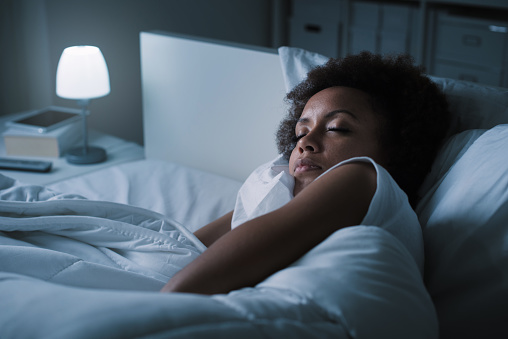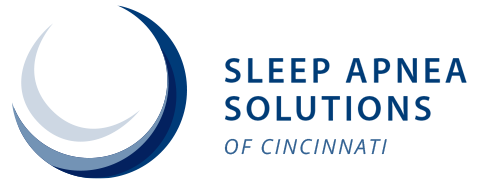Obstructive Sleep Apnea (OSA) FAQs
Cincinnati, OH

What are some signs or symptoms of Obstructive Sleep Apnea (OSA)?
| • | Stopping, or struggling to breathe while sleeping |
| • | Feeling of tired and/or sleepy through the day |
| • | Falling asleep at inappropriate times |
| • | Morning headaches |
| • | Difficulty concentrating |
| • | Forgetfulness |
| • | Depression |
| • | Excessive nighttime urination |
| • | Sexual dysfunction |
What are the facts about sleep apnea and society?
Sleep deprivation
| • | 32% of Americans sleep 6 hours or less per night |
| • | 23% of adults fall asleep at the wheel during the past year |
Snoring and sleep apnea
| • | Approximately 40% of adults over 40 snore |
| • | 87 million Americans snore and 45 million of them snore every night |
| • | 9% of men and 4% of women have signs of OSA on testing |
| • | 4% of men and 2% of women have signs and symptoms of OSA |
| • | OSA is as prevalent as diabetes or asthma |
What are some predisposing factors to Obstructive Sleep Apnea (OSA)?
| • | Increased age - although many young people also |
| • | Increased weight/obesity - although thin and fit too |
| • | Male gender - although many, many females also |
| • | Disproportionate upper airway anatomy |
| • | Alcohol or sedative hypnotics |
| • | Hypothyroidism |
What are some risk factors for Obstructive Sleep Apnea (OSA)?
| • | Increased rate of motor vehicle accidents |
| • | Increased risk of loss of employment |
| • | Uninsurability |
| • | Marital discord |
| • | Cardiovascular consequences |
| • | Stroke |
| • | Diabetes |
| • | Obesity |
| • | Age |
| • | Sedentary lifestyle |
What are some physiologic effects of Obstructive Sleep Apnea?
Cessation of breathing leads to:
| • | Reduced oxygen levels in the blood |
| • | Increased carbon dioxide levels in the blood |
| • | Acidosis |
| • | Potential for increased risk of cancer |
Cardiovascular consequences of OSA
| • | 30-45% of patients with OSA have hypertension |
| • | OSA patients have 5 times greater incidence of heart attack |
| • | Individuals with chronic snoring have 3 times greater risk of dying during sleep than non-snorers (most likely due to accompanying apnea) |
How is Obstructive Sleep Apnea categorized/defined?
| • | Length of time of apnea event |
| • | Percentage of oxygen desaturation |
| • | Complete or Partial stoppage of breathing |
What are some medical treatments for Obstructive Sleep Apnea?
| • | Behavioral treatment and avoidance of risk factors |
| • | Weight loss |
| • | Body positioning |
| • | Avoidance of CNS depressants |
| • | Avoidance of upper airway irritants |
| • | Oral appliance therapy |
| • | Surgery |
| • | Tracheostomy |
| • | Tonsillectomy/adenoidectomy |
| • | Nasal surgery |
| • | Uvulopalatopharyngoplasty (UPPP) |
| • | Somnoplasty |
| • | Maxillofacial surgery |
| • | Hypoglossal nerve stimulator (Inspire) |
What are the indications for use of an oral appliance?
| • | Primary/heavy snoring |
| • | Mild to moderate OSA (and some cases of severe OSA) |
| • | Failure of UPPP (or other surgical/medical interventions) |
| • | Use of appliance during travel |
| • | Use in combination with other treatments |
What kind of oral appliances are available?
There are over 100 FDA approved oral appliances. Selection is customized to each individual for comfort, reliability and effectiveness.
Our website has more pages with information on sleep apnea including What Is Sleep Apnea?, Sleep Apnea Treatment, Sleep Apnea Technology, and a Sleep Apnea Assessment.
